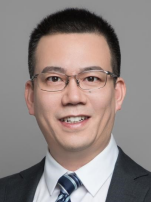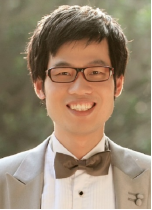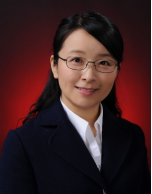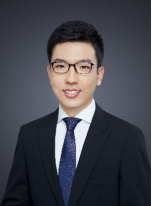分会场一
报告人1:

Title: Control and Coordination of Unicycles: Exploring the Fully Actuated System Approach
Abstract: The unicycle model serves as a simple yet powerful representation with wide implications in practical vehicle systems, encompassing differential drive robots, Ackermann-steered vehicles, among others. Simultaneously, it stands as a quintessential non-holonomic system, posing significant challenges in designing continuous stabilizing controllers. This talk aims to delve into existing efforts towards achieving stabilization and path-following control for the unicycle model, along with addressing coordination control for multiple unicycles. Furthermore, it explores the possibilities and intricacies associated with employing the fully actuated system approach, highlighting potential avenues and hurdles that need to be navigated.
Zhiyun Lin is currently a professor of School of Systems Design and Intelligent Manufacturing, Southern University of Science and Technology. He received his PhD degree in Electrical and Computer Engineering from University of Toronto, Canada, in 2005, and then he worked as a Postdoc in University of Toronto from 2005 to 2007. He joined College of Electrical Engineering, Zhejiang University in 2007 as a research professor and then promoted to a tenured full professor in 2011. In 2017, he moved to Hangzhou Dianzi University and worked as the Director of Artificial Intelligence Institute. He joined Southern University of Science and Technology in 2021. He held visiting professor positions at The Australian National University, University of Cagliari (Italy), University of Newcastle (Australia), University of Technology Sydney, and Yale University. His research interests focus on multi-agent systems, distributed artificial intelligence, autonomous systems and swarm robots, and cyber-physical systems. He has authored and coauthored two monographs and over 230 peer-reviewed papers. From 2014 to 2023, he has been consecutively selected in the list of Mostly Cited Chinese Researchers by Elsevier. He is a Foreign Full Member of the Russian Academy of Engineering and a Fellow of IEEE, IET, and AAIA.
报告人2:

Title: Output-Feedback Adaptive Boundary Control of Distributed Parameter Systems
Abstract: Distributed parameter systems, which are described by partial differential equations, widely exist in aerospace engineering, bioengineering, chemical engineering, and electrical engineering. Over the past decades, the control issues for distributed parameter systems have attracted considerable attention. In particular, the output-feedback adaptive control of distributed parameter systems is very challenging due to limited sensor measurements, unknown spatially varying parameters, and infinite-dimensional coupled dynamics. This talk will introduce some recent results on output-feedback adaptive boundary control for several classes of distributed parameter systems. The basic tools include observer canonical form, swapping identifier, and infinite-dimensional backstepping approach.
Jianbin Qiu received the B.Eng. and Ph.D. degrees in Mechanical and Electrical Engineering from the University of Science and Technology of China, Hefei, China, in 2004 and 2009, respectively. He also received the Ph.D. degree in Mechatronics Engineering from the City University of Hong Kong, Kowloon, Hong Kong, in 2009. He is currently a Full Professor at the School of Astronautics, Harbin Institute of Technology, Harbin, China. He was an Alexander von Humboldt Research Fellow at the Institute for Automatic Control and Complex Systems, University of Duisburg-Essen, Duisburg, Germany. His current research interests include intelligent and hybrid control systems, signal processing, and robotics. Prof. Qiu is a Fellow of IEEE and serves as the chair of the IEEE Industrial Electronics Society Harbin Chapter, China. He is an Associate Editor of IEEE Transactions on Fuzzy Systems, IEEE Transactions on Cybernetics, and IEEE Transactions on Industrial Informatics.
报告人3:

Title: Active Control of Thermoacoustic Systems
Abstract: Thermoacoustic instability is a physical process that takes place frequently in combustion systems, from aero-engines to land-based gas turbines. Thermoacoustic instability in combustors mainly results from interactions between unsteady heat release and acoustic field within a closed combustion chamber. In this talk, I shall present our recent study on the active control of unstable thermoacoustic systems, using Rijke tube, a classical, time-honored experimental platform in simulating thermoacoustic processes. For this system, we developed a first-order hyperbolic partial differential equation (PDE) model for one-dimensional compressible gas dynamics, combined with the Heckl heat release model, to describe the unstable thermoacoustic system in the tube. Two boundary feedback control strategies, including a boundary proportional control and a backstepping control with tunable parameters, are developed to achieve dual purposes: To decouple the interaction between the unsteady heat release and the acoustic field, and to stabilize the unstable thermoacoustic process. Interestingly, based on the Galerkin method, it is found that the thermoacoustic system in the Rijke tube constitutes an uncertain nonlinear high-order fully actuated system, which can be stabilized by employing feedback design approaches for fully actuated systems.
Dan Ma is a Professor of Northeastern University, China. She was a Guest Professor with Department of Electrical Engineering, University of Notre Dame, South Bend, Indiana, USA, in 2012, and a Research Fellow with Department of Electrical Engineering, City University of Hong Kong, Hong Kong, China, in 2017. Her main research interests include switched systems, time-delay systems, robust control, and their applications to aero-engines. She was recognized by several awards, including the First Prize of Ministry of Education Natural Science Award, the Young Scientist Award of Chinese Association of Automation, and the Guan Zhao-Zhi Best Paper Award of the Chinese Control Conference. She also mentored students who won Best Student Paper Award and Best Poster Award in five different international conferences. She is currently an Associate Editor for International Journal of Robust and Nonlinear Control, and for IET Control Theory and Applications.
报告人4:

Title: Modeling and Control of Collision-Resilient Tensegrity Aerial Robots
Abstract: Adaptive UAVs have been widely applied in various fields due to their high maneuverability and flexibility. However, when facing tasks with multiple constraints and limitations, such as post-disaster emergency rescue and exploration in high-risk areas, UAVs reveal shortcomings in terms of safety and operational range. In response to the demands for deformability, impact resistance, and cross-domain operations posed by such special tasks, this talk introduces a new class of collision-resilient tensegrity aerial robots. First, we discuss six-bar tensegrity robots, including their dynamic modeling and control methods. By employing the port-Hamiltonian framework, the challenge of modeling intricate environmental interactions is overcome. Based on the developed model, we present closed-form analytical control laws using the form-finding approach. Furthermore, as an extension of pure tensegrity robots, we introduce modeling and control methods tailored for tensegrity aerial robots, which demonstrate nonholonomic and underactuated attributes.
Qingkai YANG is a professor of the Beijing Institute of Technology. He obtained dual doctoral degrees from the University of Groningen in the Netherlands and the Beijing Institute of Technology in 2018. His current research mainly focuses on multi-agent cooperative motion control, new concept robot design, modeling, and control. He has published over 40 articles in journals such as Automatica, IEEE Transactions on Automatic Control, IEEE Robotics and Automation Letters, etc. He has authored 1 monograph and holds more than 30 authorized invention patents. He received the Excellent Ph.D. Dissertation Award from the Chinese Association of Automation in 2020, and was granted the National Key R&D Program in 2022. He won the First Prize of Natural Science Award from The Ministry of Education of China and the Chinese Association of Automation, respectively, in 2022. He was honored for the National High-Level Talent Special Support Programs (10,000 Talents Program) - Young Talents in 2023. He serves as a committee member of the Control Theory Committee of the Chinese Association of Automation (TCCT) Multi-Agent Control Group and the Nonlinear Systems and Control Group, as well as a member of the Unmanned Systems Committee of the Chinese Society of Command and Control. He served as a Guest Editor for Electronics and a youth editor for Unmanned Systems Technology.
